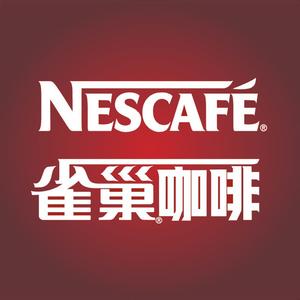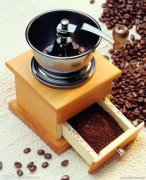The crisis of eliminated instant coffee Nestle coffee
McDonald's sells coffee, KFC sells coffee, Haagen-Dazs sells coffee, even clothing brand attachment has opened a cafe of the same brand, and Starbucks is still desperately expanding. As a result, Nestl é, the largest brand in the Chinese instant coffee market, destroyed hundreds of tons of instant coffee near its expiration date at a coffee factory in Dongguan in January and February this year. A person from Nestl é's China Public Relations Department told me that the purpose of this inventory destruction is to keep the shelf products fresh.

According to reports, the above destroyed products are returned to the market close to the shelf life, with a total amount of nearly 400 tons and a market value of more than 10 million yuan, which is the largest destruction since the establishment of the plant in 1992.
Why are there so many returns? Gong Wanren, Nestl é's chief financial officer, may explain when she spoke at a performance meeting with analysts in February when she said growth in the entire category of instant coffee was slowing.
Further investigation may be due to the popularity of cafes and the rapid growth of the ready-to-drink market. According to a previous report by consulting firm Mintel, the market share of instant coffee, freshly ground coffee and ready-to-drink coffee is 71.8%, 10.1% and 18.1%, respectively. Instant coffee will continue to dominate China's coffee market. However, as the market for freshly ground coffee and ready-to-drink coffee grows more rapidly, these two market segments are expected to gain more share. Mintel expects the share of instant coffee to fall by more than 5 percentage points to 66 per cent by 2019.
The current problem of instant coffee is just a microcosm of Nestl é's problems in the Chinese consumer market.
Nestl é reported global sales of 91.6 billion Swiss francs in 2014, a 4.5 per cent increase, but weak performance in China, the second-largest market. Although no specific figures were released, Gong Wanren mentioned that apart from the above-mentioned instant coffee, Nestl é's previously acquired Yinlu and Hsu Fu Chi did not perform well.
With regard to this performance, Bok Kai, chief executive of Nestle, believes that the reason is that some changes are taking place in China's consumer environment. He described the changes in this way: "at least in the range I have seen, consumers in other markets in the world have changed as fundamentally as in China." In addition to slowing economic growth and reducing gift-giving as a result of the fight against corruption, people's demand for health and changes brought about by digitization are affecting changes in people's spending habits. Nestl é still needs time to identify trends and reformulate plans to keep up with them.
Digitalization, that is, the impact of e-commerce is the most significant. In the past, foreign brands like Nestl é mainly relied on modern channels such as supermarkets and stores for sales, but large stores, including Carrefour and Wal-Mart, have encountered bottlenecks in the development of China in recent years. and is adjusting the store layout and internal organizational structure in order to reduce costs and improve operational efficiency. Reflect to the supplier, that is, the channel begins to reduce inventory.
Just as instant coffee has encountered many new competitors, Xu Fuji has also encountered more foreign competitors. Even in a medium-sized Lianhua supermarket in Shanghai, there are as many as 10 or 20 imported products from eight countries on the biscuit shelves. In the view of many people, choosing to import is like being insured with "safety". In this way, how can Hsu Fu Chi be competitive? In addition, the new generation of consumers pay more attention to healthy eating and like to taste fresh, which are the challenges facing traditional food.
However, many of Nestle's products still achieved good growth in China last year. Nestl é has achieved almost double-digit growth in cooking products and double-digit growth in ice cream, ready-to-drink coffee and Kit Kat, a long-established brand.
Among them, it is not difficult to find that most of these categories are experiential products that are difficult to be replaced by e-commerce. Cui Yixiong, founder of the city supermarket, also said that in the future development of the supermarket, more experiential consumer goods will be added, because competing with e-commerce to sell standardized products similar to Oreo biscuits is not the advantage of supermarkets.
Important Notice :
前街咖啡 FrontStreet Coffee has moved to new addredd:
FrontStreet Coffee Address: 315,Donghua East Road,GuangZhou
Tel:020 38364473
- Prev

There are four main factors affecting extraction by bean grinder.
1. Evenness: the coarser coffee particles are more likely to be underextracted, while the finer particles will be extracted too much in advance, so the coffee powder with a larger span of grinding thickness will taste more turbid and irritating smells. On the other hand, when the coffee powder with the same size and similar shape is used for extraction, the taste becomes brighter and stronger, and the flavor characteristics are better.
- Next

Drink coffee to lose weight, drink coffee at regular intervals and easily lose 3 kilograms.
Slimming coffee is specially roasted, which contains natural caffeine ingredients that can effectively decompose body fat and release fat in the blood. after drinking coffee for 3040 minutes, the concentration of fatty acids in the blood will become higher. at the same time, carry on the right amount of exercise, burn fat effectively, make the body reduce fat. If you drink coffee according to the time limit, you can easily lose 3 kilograms at noon: after lunch
Related
- Can I make coffee a second time in an Italian hand-brewed mocha pot? Why can't coffee be brewed several times like tea leaves?
- Hand-brewed coffee flows with a knife and a tornado. How to brew it? What is the proportion of grinding water and water temperature divided into?
- What is the difference between Indonesian Sumatra Mantinin coffee and gold Mantinin? How to distinguish between real and fake golden Mantelin coffee?
- What does bypass mean in coffee? Why can hand-brewed coffee and water make it better?
- Unexpected! Ruixing Telunsu lattes use a smoothie machine to foam milk?!
- % Arabia's first store in Henan opens into the village?! Netizen: Thought it was P's
- Does an authentic standard mocha coffee recipe use chocolate sauce or powder? Mocha Latte/Dirty Coffee/Salty Mocha Coffee Recipe Share!
- What is the difference between Vietnam egg coffee and Norway egg coffee? Hand-brewed single product coffee filter paper filter cloth filter flat solution!
- What is the difference between sun-cured and honey-treated coffee? What are the differences in the flavor characteristics of sun-honey coffee?
- How to make Italian latte! How much milk does a standard latte use/what should the ratio of coffee to milk be?

